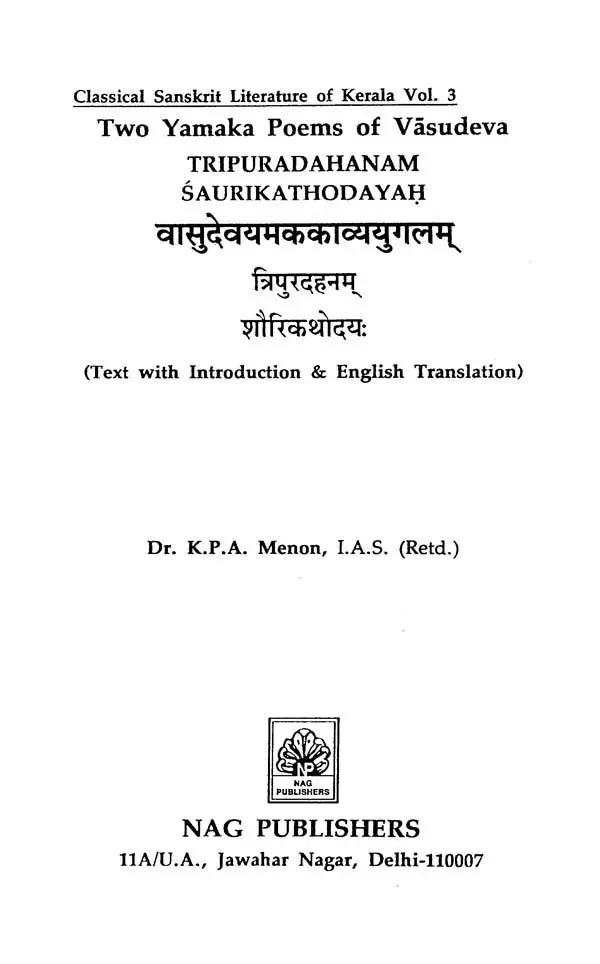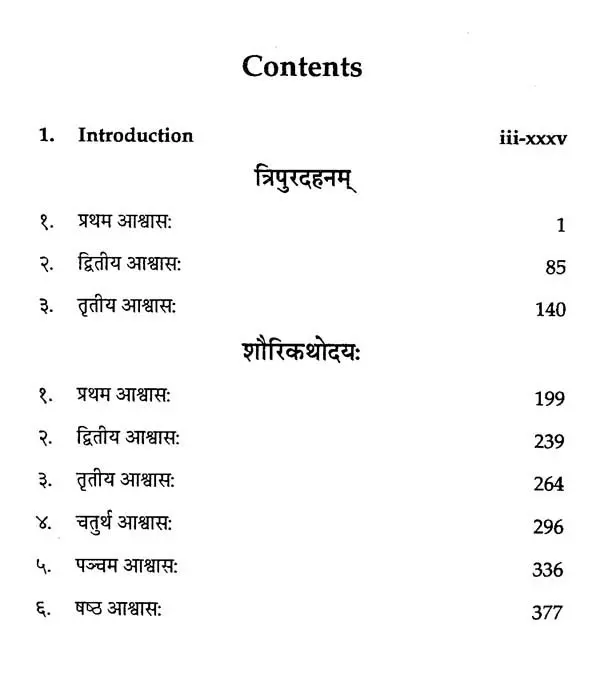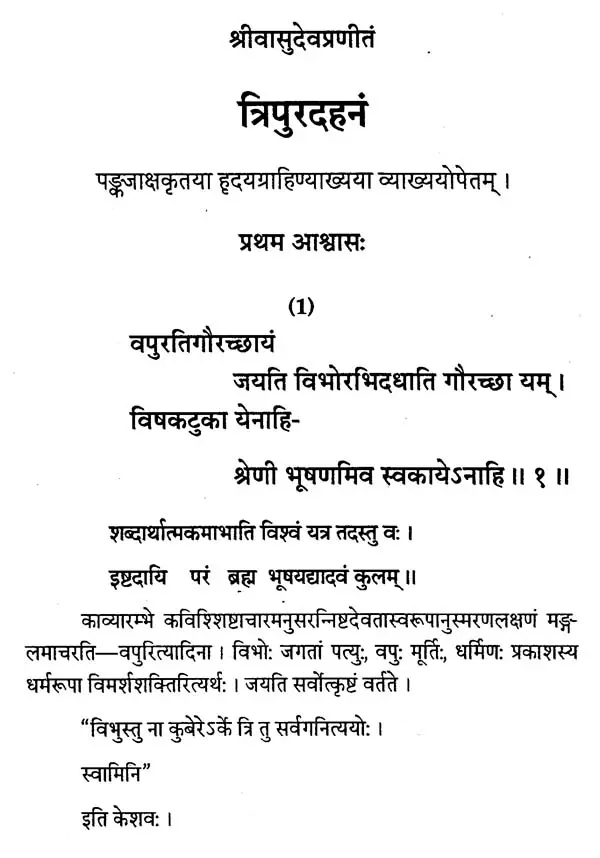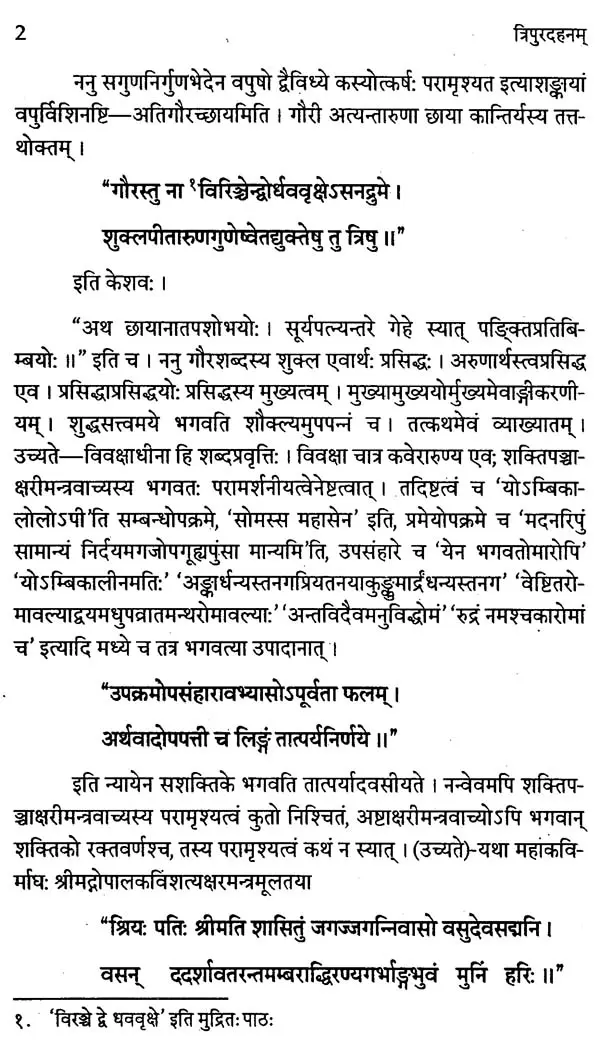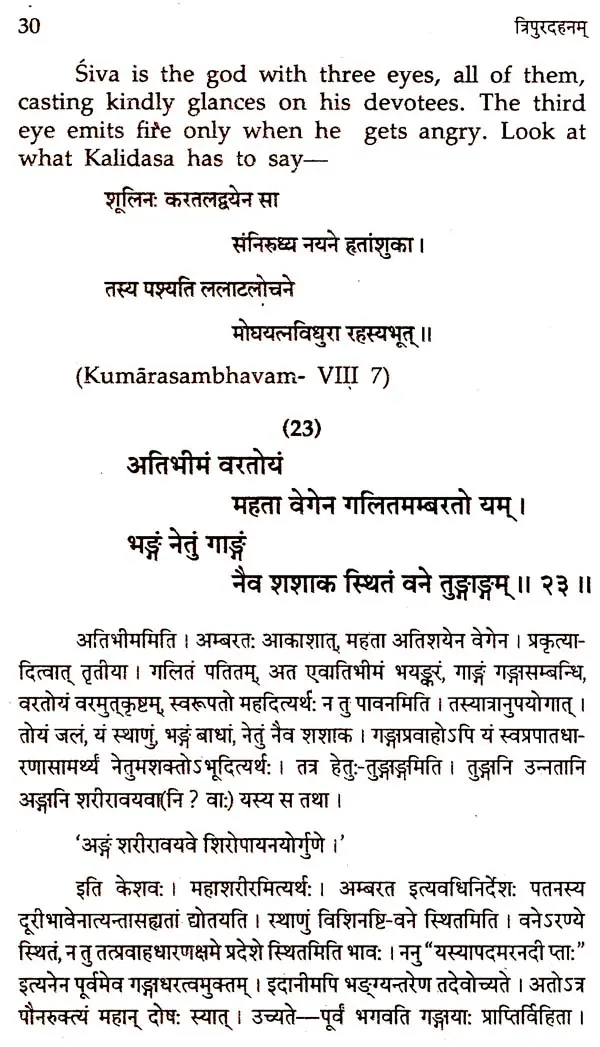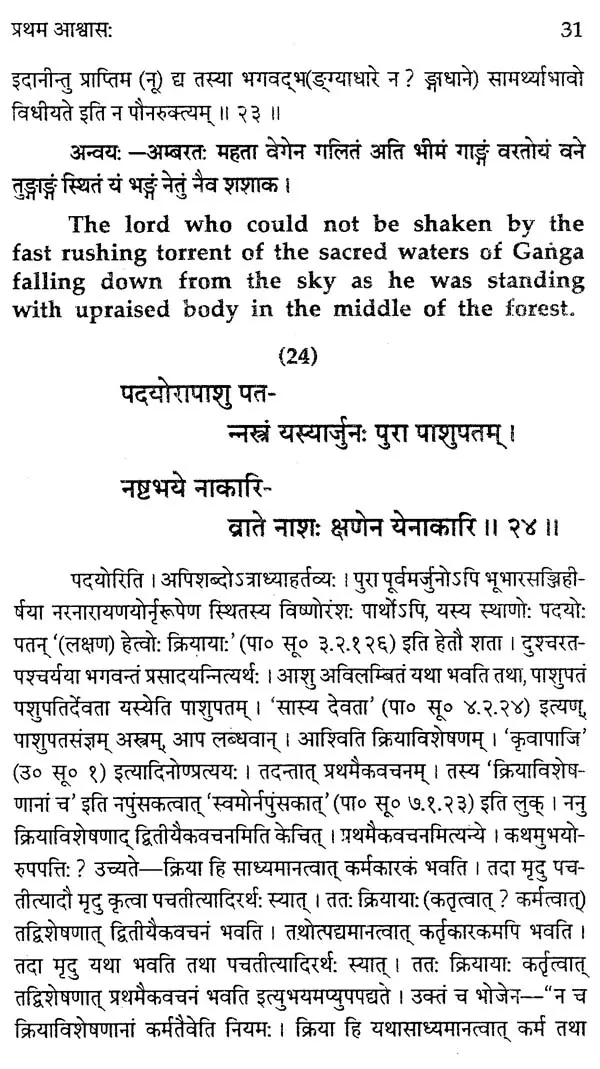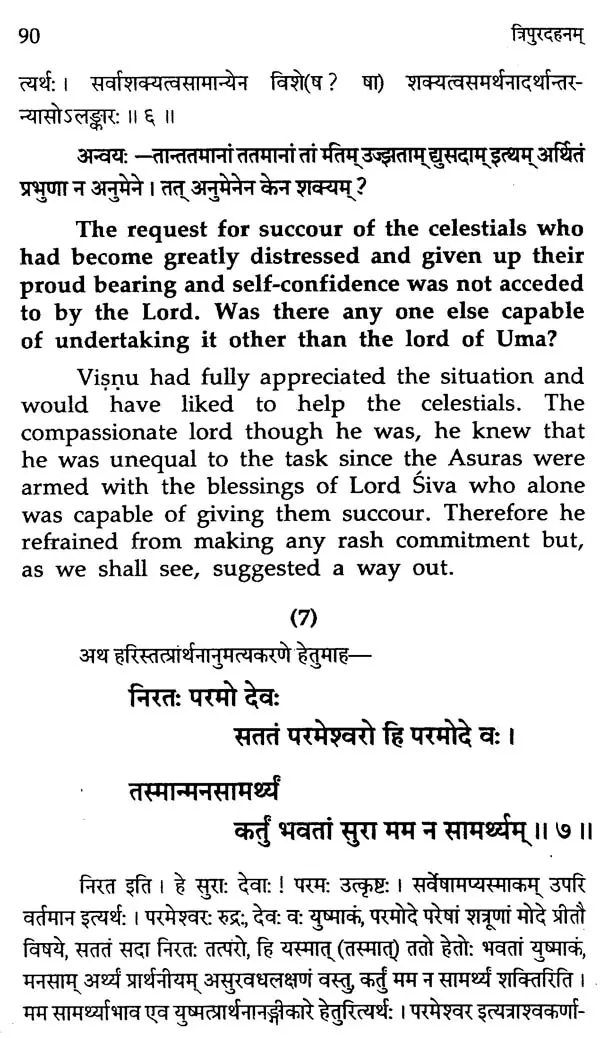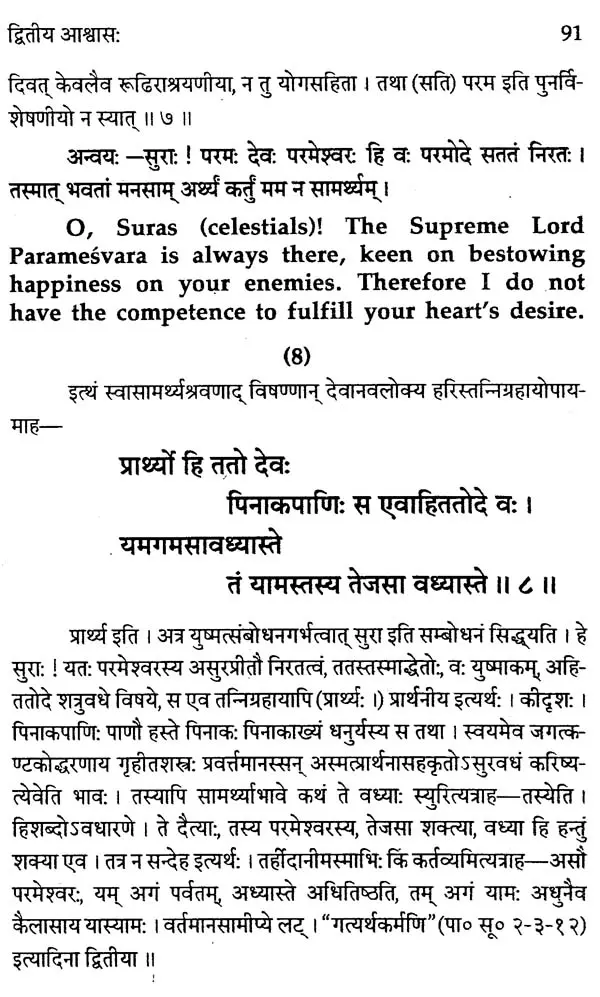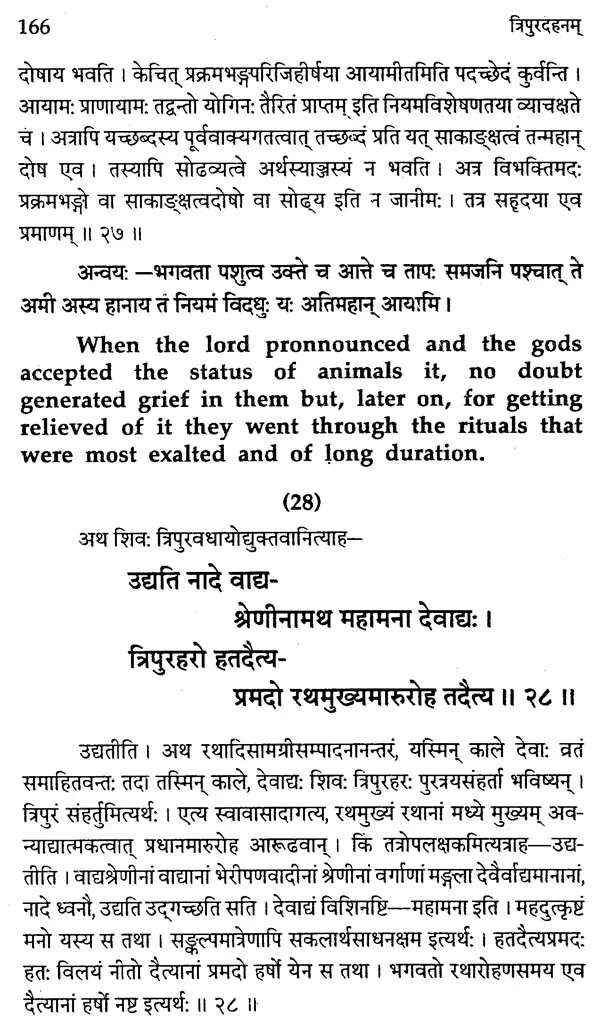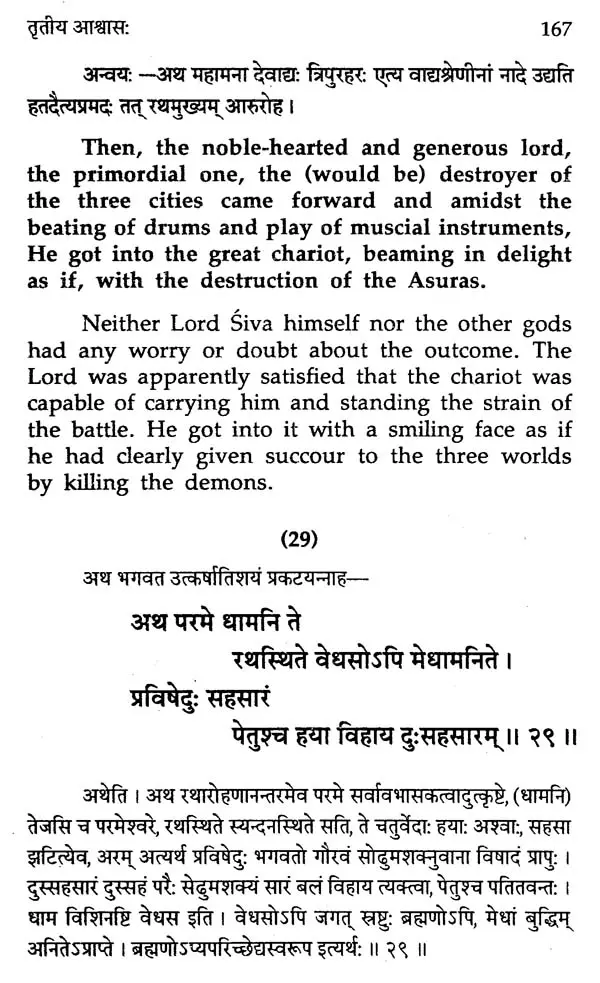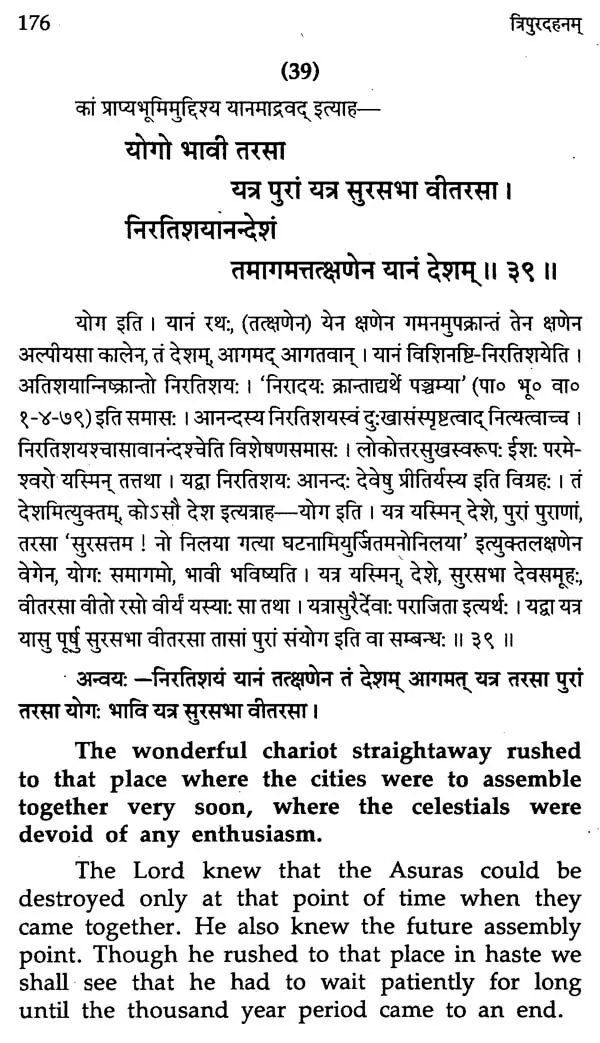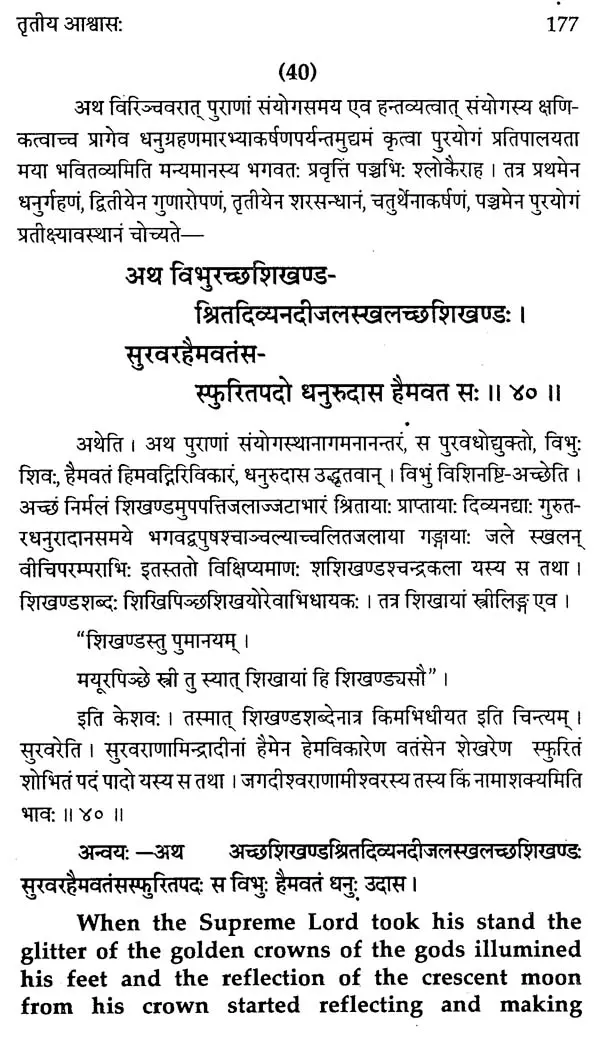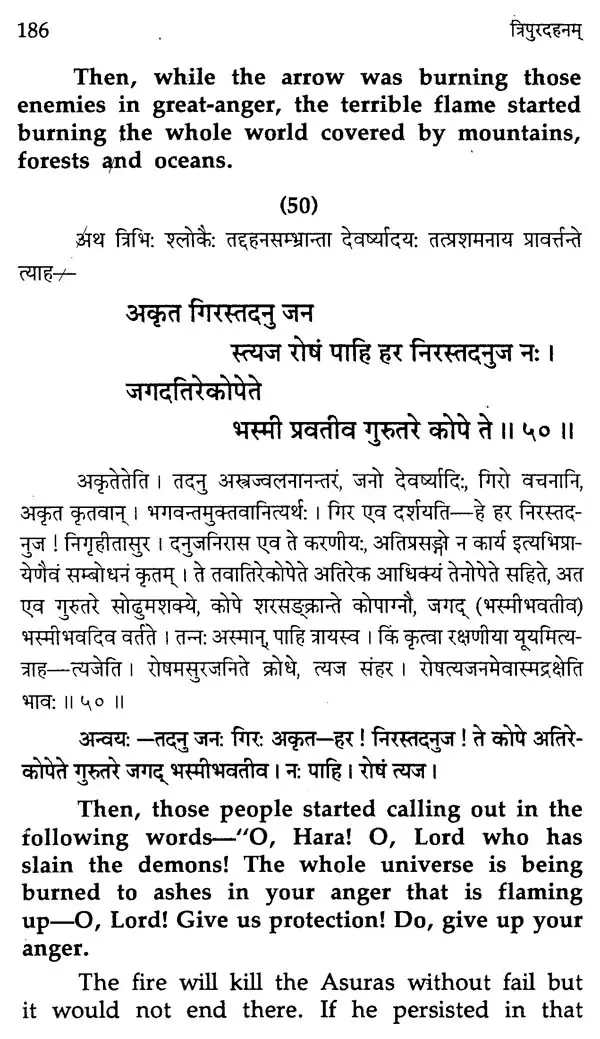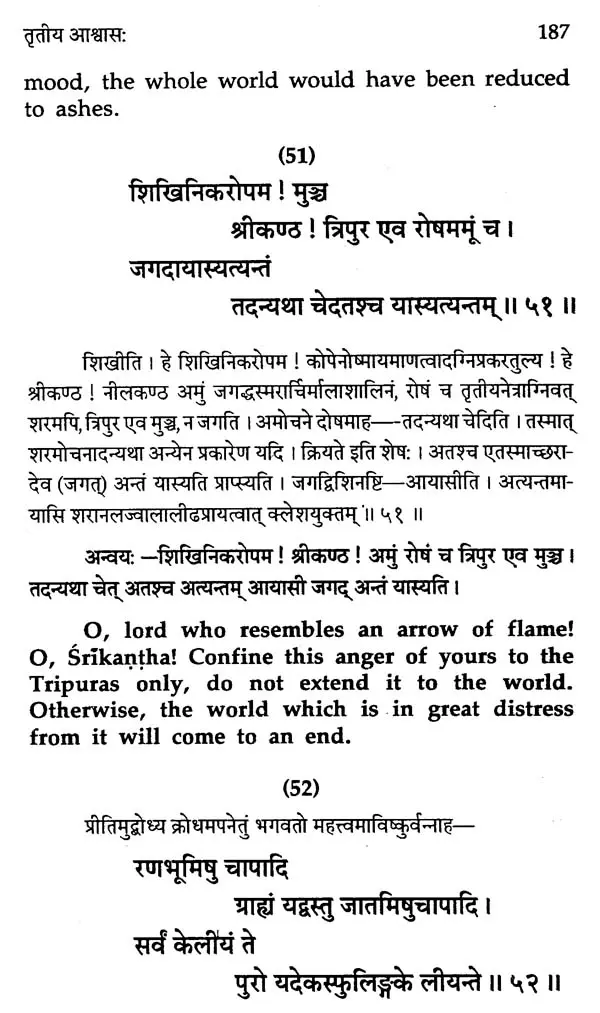
वासुदेवयमककाव्ययुगलम्-त्रिपुरदहनम्:शौरिकथोदयः- Two Yamaka Poems of Vasudeva Tripuradahanam Saurikathodayah (Text with Introduction & English Translation)
Book Specification
| Item Code: | UAN569 |
| Author: | K. P. A. Menon |
| Publisher: | NAG PUBLISHERS |
| Language: | Sanskrit Text with English Translation |
| Edition: | 2003 |
| ISBN: | 8170814316 |
| Pages: | 461 |
| Cover: | HARDCOVER |
| Other Details | 8.50 X 5.50 inch |
| Weight | 600 gm |
Book Description
The present work is in continuation of the famous Yamaka poem, Yudhisthiravijayam by the same poet Vasudeva Bhattatiri. The theme for Tripuradahanam is also drawn from the Mahabharata and deals with the destruction of the three Asuras at the hands of Lord Mahesvara. Travelling with the speed of wind in the three cities, they had become invincible due to the boon granted to them by Lord Brahma.
Saurikathodaya deals with the life story of Sauri or Krsna starting from his birth as the offspring of Vasudeva and Devaki. With the expression 'Udaya' one would normally expect that the theme relates to the early part of the life of Krsna and would at least stop with the killing of Kamsa. As it happens, the poet continues the story and takes it up to the marriage of Krsna's grandson Aniruddha with Usa, the daughter of Bana. From this point of view the alternative title of Saurikatha would appear to be more appro priate.
In dealing with the Saurikatha the author has borrowed from a number of Puranas and from the great epic Mahabharata. On occassions he has not hesitated to give his own version also.
Dr. K.P.A. Menon, B.Sc., M.A, LL.B, Ph.D. Chancellor of the Lal Bahadur Shastri Rashtriya Sanskrit Vidyapeeth, New Delhi is an eminent scholar, scientist and administrator who has held many important assignments in the government including the post of Defence Secretary to the Govt. of India. Epic poetry and dramas have been his special field of interest and he is also trying to unearth the vast treasures contained in Sanskrit literature in diverse fields like agriculture, science and technology, polity etc: He is the recipient of a large number of national and international awards including the Honorary Fellowship of Biographical Academy of the Commonwealth & International Biographical Centre, Cambridge, Distinguished Leadership Award of the American Biographical Institute, Albert Einstein Memorial Medal, the Sahityanikasa and the Kalidasa Awards for his Sanskrit writings.
As the author of Yudhisthiravijayam, Vasudeva Bhattatiri has been accepted as the greatest among the Yamaka composers of Sanskrit literature. Though there have been some small controversies regarding the authorship of this poem, it has by now been established beyond doubt that Vasudeva was the court poet of one of the Kulasekharas of Mahodayapuram. The two Yamaka poems Tripuradahanam and Saurikathodayah have also been generally accepted as the compositions of Vasudeva. Fortunately, the author has not worked under any cloak of anonymity and has left some details about himself and the circumstances under which he had undertaken the task of composing each one of his poems. A careful study of the three Yamaka kavyas will give us ample evidence to support the contention that the composer was a poet hailing from Kerala and was a court poet of one of the great Kulasekhara rulers.
The poet His life and times.
The confusion regarding the identity of the poet Vasudeva seems to have arisen first due to the suggestion made by the editors of the Kavyamala series that he must have hailed from Kashmir since the manuscript of the poem had been obtained from that state. The fact that a Kashmir scholar Rajanaka Ratnakantha of the 17th century had made a commentary on the poem gave them additional support for the theory of Kashmir origin. The great Yamaka poem had first appeared in print in the Kavyamala series only and, it would appear that the editors did not know about the existence of other manuscripts in Kerala or else where.
**Contents and Sample Pages**
